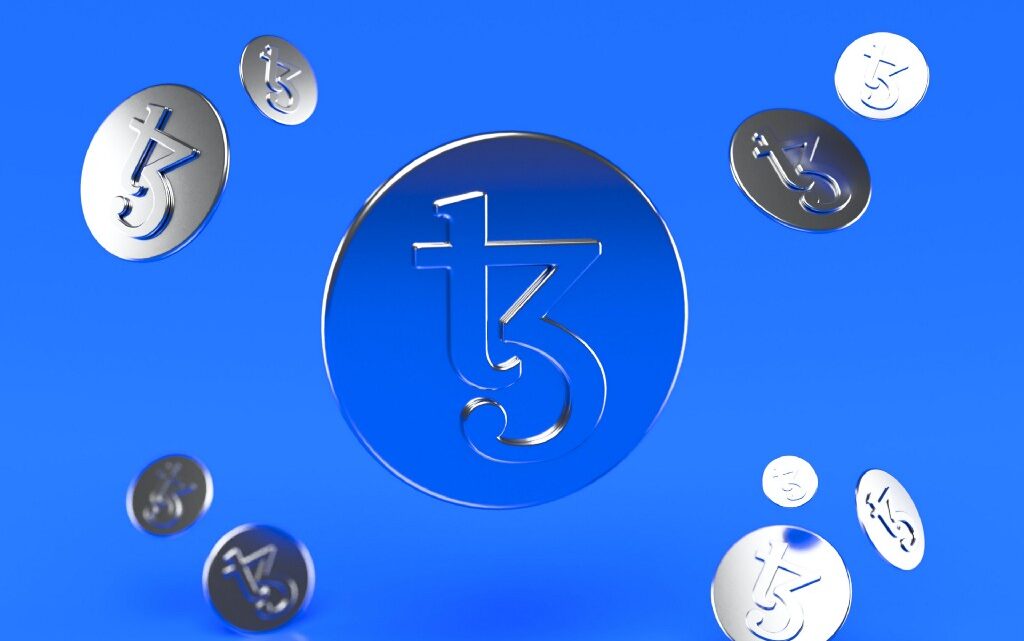
Tezos Commons :: Are your tez, actually yours?
November 23, 2022To say the last few days have been tumultuous would be an understatement. We are all witnessing the chaos in the crypto space that was started by the FTX collapse and still trying to untangle the insolvency mess that was created by their downfall. The worst part of this all and the part that saddens me the most though, is that everyday-users and innocent people are getting caught in the “blast radius” and are losing a lot of money. Money that people thought they had parked in a “safe place”, turned out to be the opposite of safe.
If we take a step back and look at the bad events, we will notice that in most of the cases where people lost their funds, they had their funds sitting with some sort of centralized entity (custodian or central exchange). The feeling that something is “too big to fail” or the thought that “if something was wrong, someone would have noticed” are usually some of the reasonings behind people leaving their money sitting on exchanges and in the custody of third parties.
That means that if people were keeping their assets in their own wallets, they probably would have dodged most of the bullets that hit them. We have seen way too many examples of such incidents to still believe that they are “rare events” and not very probable. A few notable exchange collapses include MtGox, Cryptopia, Cryptsy, Quadriga and now FTX. Many other similar cases show us that this will most probably happen again in the future.
So, because it’s better late than never, in this article I want us to look at why self custody is important. This article is not as much about what people should’ve done, but more about what people should be doing going forward to keep their tez safe. (If you hold other assets, the principals mentioned here also apply to other assets.)
Self-Custody
Thinking about why people are holding their tez on exchanges and other custodians, I come up with two main reasons, trading and convenience.
Trading
I understand that if you are actively day trading, you need to have your funds available at any moment to get in and out of positions and this is a case where it’s reasonable enough to have funds on exchanges. But, even if you’re a day trader, it’s not wise to hold all your funds on a centralized exchange as the risk of losing it all is much higher and this has become abundantly clear with the recent events. Most traders I talk to, are holding only a part of their portfolio on exchanges- just enough to cover their positions.
Keep in mind that Tezos after the Ithaca upgrade and the adoption of the Tenderbake consensus algorithm, has a finality of only 2 blocks which means that on most exchanges like Kraken or Binance it only takes ~2 minutes for your funds to show up when you deposit them. So it’s much safer to move your tez in and out whenever it’s needed rather than have them sitting in the exchange “in case” you need them.
It only takes one bad moment and for whatever reason for your funds to be locked by the custodian and gone forever.
Convenience (lack of “know-how” or knowledge)
One of the most common reasons why people choose not to use self custody wallets for their tez, is the convenience exchanges offer. People log onto an exchange, buy the asset they want, and hold it in there without having to deal with separate apps, wallets, seed phrases etc., which might feel “too technical” for them.
This convenience of course comes with a huge trade off, namely: your money (tez), isn’t actually yours. Just like in the traditional banking system where the banks are in charge of your money and in times of crisis they can do whatever they want with them (lock them, cut them in half, put capital controls etc.), exchanges and custodians are also in charge of the assets you are holding on their platforms, and you are actually agreeing to that when you agree to their terms of service when you open an account with them. Essentially, central exchanges give you a credit for what you want to buy, and it only becomes yours when you move it off their exchange and into your own wallet.
Now imagine you are given the option to actually own your personal bank account where you are holding your hard earned money and regardless of any crisis, the banks can’t touch your funds. Would you try to learn how to open such a bank account? Wouldn’t it be worth learning that extra skill? The old adage in crypto that rings true to this day is, ‘not your keys (private key), not your coins’.
This is exactly the ability cryptocurrencies like tez and self custody wallets offer you. When you hold your tez in your own wallet, no one can touch them or block you from doing whatever you want with them. You become the master of your own domain (tez).
In my opinion, being the real owner of your tez, with no ability to censor you while also being able to stake them and always have them liquid, is a freedom too important to pass up. It may be a bit daunting to self custody your tez, but it is completely worth it, especially have the peace of mind that your funds are ‘safu’. After all, wallets have seen a lot of development in regards of the user experience they offer and are much more user-friendly than they were 5 years ago.
Add to that the ability to interact with a variety of interesting DApps inside the Tezos ecosystem , self custody becomes a no brainer.
Self-Custody wallets
With all that said, let’s take a look at how wallets work and some of the main concepts you should be aware of when choosing to hold your tez in one of them. Please note this is not an exhaustive piece, just a mention of the basics around wallets. So let’s take a look at what a wallet is in simple terms.
A crypto wallet is basically hardware or software that allows you to store your public and private keys with which you can store, access, interact, and manage your tez on the blockchain. Think of it as having a personal vault on the blockchain that only you can access using your private key- which is stored in your wallet. There are two types of wallets, hot wallets and cold (a.k.a. hardware) wallets.
Hot wallets are basically software that has your private keys stored and provide a UI (“User Interface”) for you to manage your assets. They are more practical and easier to use for more frequent activities, but are less safe than hardware wallets.
Hardware (cold) wallets, are hardware devices, usually like a flash disk drive that store your private keys offline thus offering more security as they are not online, and they are the best for long term holding of coins. One of the most popular hardware wallet is Ledger. Cold storage is considered the most secure way to store your tez. Hardware wallets can be used in conjunction with hot wallets, for example, I can use a hardware wallet to store my private keys and connect my hardware wallet to a wallet like Kukai, Temple, or Umami, etc.
Here is a list with some of the most popular Tezos wallets:
Temple Wallet (hot) Browser extension & mobile app, supports ledger devices.Kukai Wallet (hot) Web wallet usable on mobile browsers too, supports ledger devices.Galleon (hot) Desktop wallet, supports ledger devices.Umami (hot) Desktop wallet, supports ledger devices.Naan (hot) Mobile wallet.AirGap (hot) Mobile wallet. Can also be used as cold storage using a mobile device that you keep offline.Ledger (Cold) Hardware wallet.
(You can always double check you’re going to the correct wallet site by going here.)
It’s important to note that regardless of the wallet you choose, when you set you wallet up for the first time, you will be given some specific words known as seed phrase or recovery phrase. It is really important that you save it, ideally offline, as whoever has access to it, has access to your wallet. The best way is to back them up by writing the words in the correct order on a paper and store it in a safe place that only you have access to. Keep in mind that if you do not correctly write down the information, this can lead to a loss of funds as you won’t be able to access your coins if you ever need to restore them into a wallet.
As long as you have the recovery phrase you can always get access to your funds and it doesn’t matter if your hardware device breaks, or if the software wallet you are using is discontinued etc., you can always restore your funds on another wallet by using your recovery phrase. As we said before, the funds aren’t stored “in your wallet” but on the blockchain, wallets just store your private keys, so as long as you have the keys (recovery phrase) backed up, you will always have access to them.
I hope this helps more people understand the importance of self custody and the freedom blockchains like Tezos offer. If you enjoyed this article make sure to share it and subscribe for more.
Are your tez, actually yours? was originally published in Tezos Commons on Medium, where people are continuing the conversation by highlighting and responding to this story.


